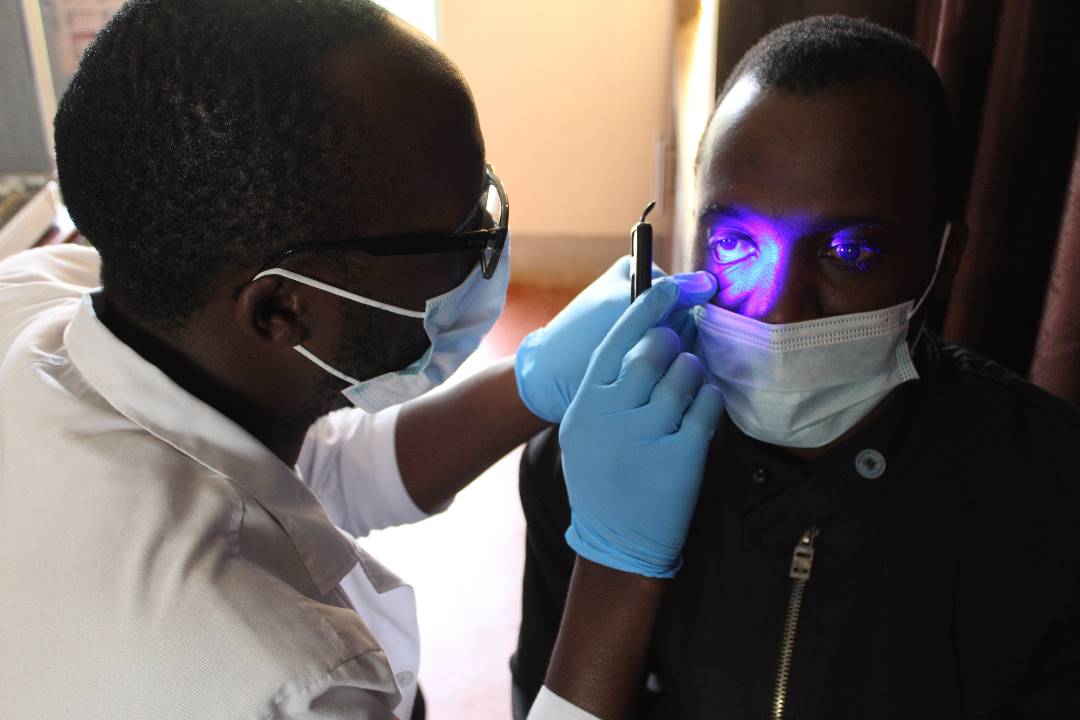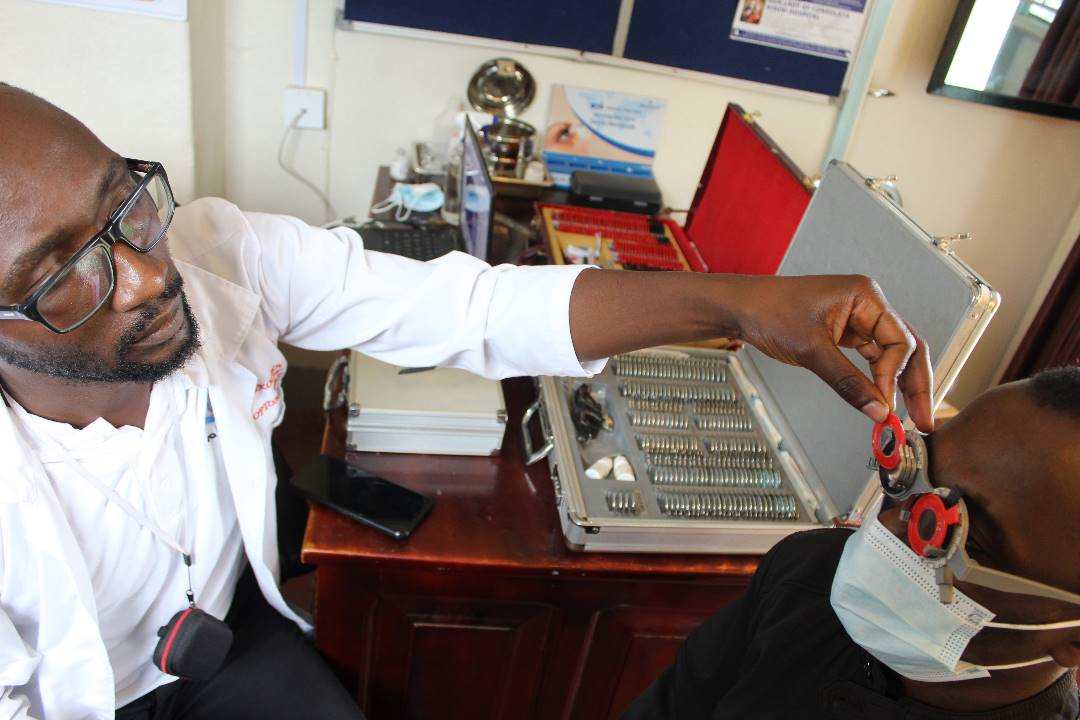By Banan Enoch (An Ophthalmic Clinical Officer at Kisubi Hospital)
Your difficulties in carrying out daily tasks on computers, reading writing, and near vision difficulties may be attributed to presbyopia.
Presbyopia is an age-related loss of lens accommodation that results in an inability to focus at near distances. It is the most common physiological change occurring in the adult eye and is thought to cause universal near vision impairment with increasing age.

People who become presbyopic may complain of headaches and eye strain, and hold objects further away from their eyes in order to be able to focus on them (compensatory mechanism). However, objects may still become too small to be identified.
Presbyopia affects quality of life. This seems straightforward in high-income populations, where reading and writing are the main near vision tasks undertaken. However, it is a misconception to think that presbyopia has no impact on quality of life in populations where reading and writing are less a part of daily life, like in the rural populations of low- and middle-income populations.
In rural communities, other than reading and writing, near vision is needed for winnowing grain, sorting rice, weeding, sewing, cooking food, dressing children, and lighting and adjusting lamps. Uncorrected presbyopia has a substantial impact on quality of life where almost 80 per cent of people with presbyopia have problems with near vision and majority dissatisfied with their ability to do near work.
A survey of ocular morbidity in rural Ugandan adults found presbyopia to be the most common cause of visual impairment in the country for which treatment was sought. Patients with uncorrected presbyopia accounted for about half of those presenting with visual impairment.

More than half of adults over the age of 40 have presbyopia with women having a higher prevalence yet the majority do not have corrective spectacles
While new treatments are being developed for presbyopia, spectacles represent an effective, economic option. The most common remedy is the prescription of a pair of reading spectacles.
At Kisubi Hospital, we do have the Eye Clinic that runs from Monday to Saturday and in the clinic, we do encounter people with presbyopia almost on a daily and they are offered help. In addition to that, the eye clinic does;
- screening and treatment for a variety of eye diseases including cataracts, glaucoma and diabetes-related eye problems,
- Prescriptions for frames, spectacle and contact lenses for both children and adults,
- Evaluation of patients with sudden visual loss or complaints without known cause and general consultation with the Eye specialists.
Remember, presbyopia can hamper development. The World Health Organization (WHO) has placed increasing emphasis on adult literacy to improve attainment of development goals, but people require good near vision to be able to benefit from programmes to improve literacy.
You could solve a lot more eye strains and headaches with a pair well prescribed spectacles. Endeavour to do eye check-ups regularly.
 The author Banan Enoch is an Ophthalmic Clinical Officer at Kisubi Hospital
The author Banan Enoch is an Ophthalmic Clinical Officer at Kisubi Hospital
For appointments regarding Eye issues, contact Kisubi Hospital via:
0700-541667 / 0776-237512 or WhatsApp on 0702-040213 and emailcustomercare@kisubihospital.co.ug













